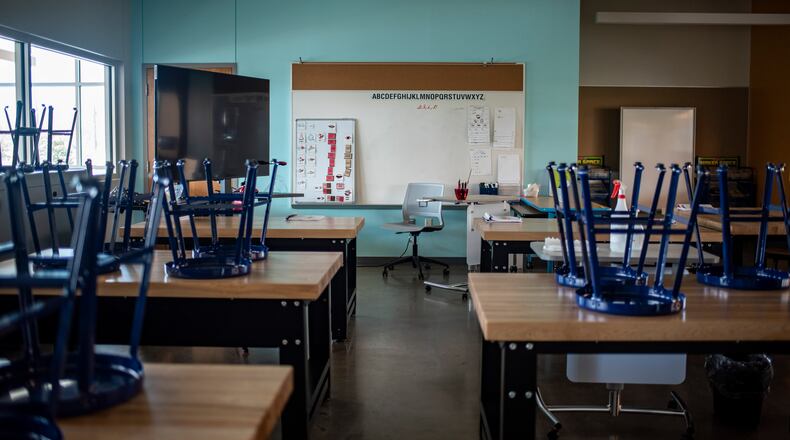Lee Allen, Gwinnett County’s teacher of the year, said the 2021-2022 school year overwhelmed him and many of his peers. A math teacher, Allen resigned his Gwinnett post, saying, “I don’t feel like a teacher very much anymore. I’m just managing behaviors.”
Allen’s candor earned a collective “Amen” from colleagues across Georgia. Educators describe this pandemic year as the most trying of their careers because kids forgot how to “do school” and discipline policies granted too much latitude and too many second chances.
I asked educators where it all went wrong. Did the push to extend grace to students go too far? Are administrators oblivious to the discipline breakdown or do they feel their hands are tied? If they feel they can’t censure behaviors, is it due to the pandemic, parents or politics?
In dozens of responses, teachers talked about the conflicting edicts they confronted. Close learning gaps for your students, but go easy on their missteps, even major infractions like fighting, disrespect, absenteeism and chronic failure to follow directions. The Atlanta Journal-Constitution has agreed to grant anonymity to the teachers I interviewed, who are worried about how speaking publicly might affect their careers. Given the dwindling pipeline of new teachers, school districts cannot afford to ignore these concerns.
Several teachers said gaps are so wide now that grade-level standards should be waived and summer school and tutoring should be mandatory for struggling students.
“This year I had students spanning K-7th grade reading levels but they all needed to read the same required novel studies: no exceptions. It is impossible to differentiate eight grade levels in one room,” said a Fulton teacher, who urged tracking by academic levels until gaps are narrowed.
Teachers also noted students, even those capable of advanced work, lacked basic social skills to collaborate. “They argued. They had no time management. Projects were a disaster and our meetings about them were full of recriminations. Somehow in all of this chaos, I managed to grow the majority of my students but it nearly killed me,” said a teacher.
A desire to spare students consequences in deference to the emotional turmoil of the pandemic proved incompatible with learning, according to educators. “Students are on their phones constantly, much more than before the pandemic. Parents push back on the banning of phones in class because they fully expect to be able to contact their children in class. And because our administrators are tired, they are letting things go that should be tackled with energy,” explained a teacher.
And it’s not just teachers feeling beleaguered. “We are equally frustrated with the lack of ability to address discipline issues and feel completely powerless to support our teachers,” said a metro Atlanta principal. “We are operating in a climate in which parents know they can go to the school board, or superintendent to complain about discipline consequences and the board and superintendent do not support us. Once a parent goes to them, we have to walk back our discipline decisions and it’s humiliating and completely usurps our authority.”
Despite their exhaustion, teachers are strategizing, especially around the critical areas of student attendance and attention. “My team of teachers plans to start next year extra strict — and hope that our administration can back us up. We are going to address every small thing starting on Day One so the kids know that we are structured and expect the best,” said a teacher.
“Lower class sizes,” said a teacher. “Instead of reducing consequences on students, focus on having consistent disciplinary consequences across demographics. Schools desperately need mental health experts working with students in need.”
With school counselors outnumbered by needy kids, a eacher said, “The sheer number of undiagnosed and unmedicated students left me flabbergasted. While this is a parental choice, adolescents in my experience do not magically improve with fidget spinners, front-row seating and organic supplements. Parents need to be more accountable for ensuring students are screened and evaluated. Those annual doctor’s visits are the ideal time to discuss your child’s unusual behaviors. Please stop waiting for us to tell you that something needs to be done.”
Finally, I asked teachers what’s next. These responses were typical: “We stop making excuses for unruly behavior. We stop allowing parents to dictate what schools can and can’t do as consequences. I’m all for getting parents in the building and letting them see what’s happening, but they do not have the expertise or authority to control our curriculum or discipline.”
“Going forward, we know we need two adults in some classrooms because those cohorts have incredibly high social and emotional learning needs. Let’s plan now to add that second adult; a paraprofessional would be fine.”
About the Author
The Latest
Featured



